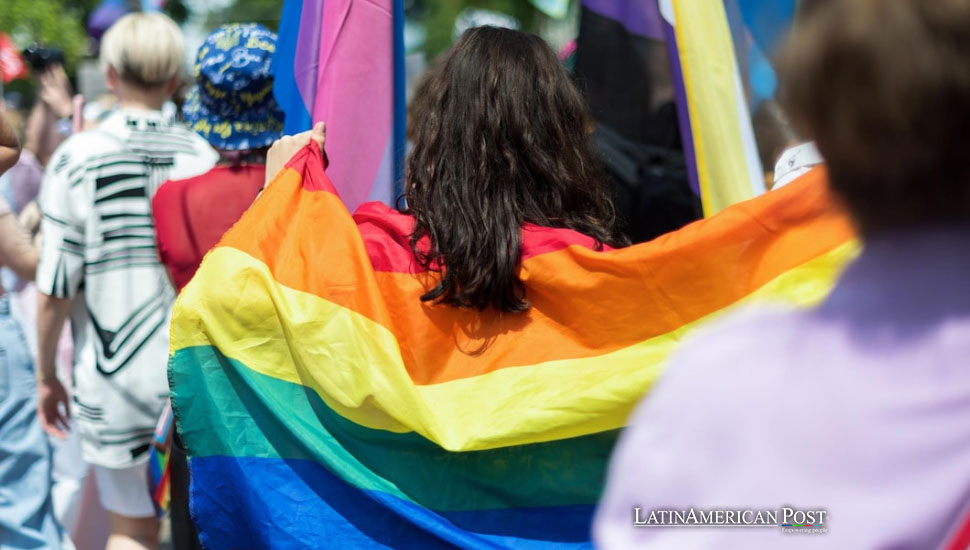Transgender Women in Colombia Face Rising Violence Amid Historical Struggles

In 2023, Colombia saw a disturbing rise in violence against its LGBTQI+ community, with transgender women bearing the brunt of these attacks. Amid this alarming trend, the country grapples with its historical context of discrimination and prejudice.
Violence against the LGBTQI+ community in Colombia reached alarming levels in 2023, with transgender women suffering the highest number of attacks. According to the Defensoría del Pueblo (Ombudsman’s Office) of Colombia, there were 166 recorded attacks on transgender women out of a total of 480 cases of violence against individuals with diverse sexual orientations and gender identities (OSIGD-LGBTI). This disturbing data highlights the ongoing struggle for acceptance and safety within the LGBTQI+ community in Colombia, underscored by a long history of discrimination and prejudice.
Rising Violence in 2023
Carlos Camargo, the Defensor del Pueblo, reported that the institution provided guidance and activated response routes for 480 cases of violence against the OSIGD-LGBTI community in 2023. Transgender women were the most affected group, with 166 attacks. The breakdown of other affected groups includes 110 attacks on gay men, 79 on lesbian women, 47 on non-binary individuals, 43 on bisexual individuals, and 35 on transgender men.
The regions with the highest reported cases were Valle del Cauca, Norte de Santander, Caldas, Santander, Boyacá, and the capital city, Bogotá. The annual report “A Radiography of Prejudice” presented these statistics, which analyzes prejudice-motivated violence cases managed by the Defensoría del Pueblo during the year.
Historical Context and Ongoing Challenges
The violence against the LGBTQI+ community in Colombia cannot be understood without acknowledging the broader historical and cultural context. Latin America has a complex history of colonization, which imposed rigid gender norms and a patriarchal social structure. Despite progressive legislation in recent years, deep-seated prejudices and societal norms continue to marginalize and endanger LGBTQI+ individuals.
On May 17, 1990, the World Health Organization (WHO) declassified homosexuality as a mental illness. This milestone is commemorated globally as the International Day Against Homophobia, Transphobia, and Biphobia. On this day in 2023, the Defensoría del Pueblo called on the Ministry of the Interior and the LGBTIQ+ Directorate to update the National LGBTI Public Policy, ensuring diverse citizen participation in its action plan, which has been pending since 2022.
Institutional and Social Complicity
The Defensoría del Pueblo emphasizes that OSIGD-LGBTI individuals in Colombia face violence fueled by prejudices that are often legitimized and naturalized through acts of social collaboration and institutional discrimination. This complicity manifests in various forms, including inadequate protection measures and a lack of responsive legal frameworks, leading to severe human rights violations.
In 2023, the Ombudsman’s Office also initiated emergency procedures, urging the police, the Prosecutor’s Office, the National Protection Unit, and local authorities to safeguard the lives and security of 59 LGBTI leaders. Of these, 54% were women leaders from the LBT community, reflecting the heightened risks faced by this group. The breakdown included 19 transgender women, 10 lesbian women, three bisexual women, 22 gay men, one transgender man, and four bisexual men.
Regional Disparities and Targeted Areas
The regions with the most significant number of cases requiring emergency intervention included Norte de Santander, Boyacá, Quindío, Valle del Cauca, Cauca, and Bolívar, as well as Bogotá and the district of Tumaco. These areas have been identified as hotspots for violence against the LGBTQI+ community, necessitating targeted efforts to address and mitigate these threats.
The Path Forward
Addressing the violence against the LGBTQI+ community in Colombia requires a multifaceted approach that includes legal reforms, social education, and institutional accountability. The Defensoría del Pueblo’s call for an updated National LGBTI Public Policy is a critical step in this direction. Ensuring this policy includes active participation from the diverse LGBTQI+ community is essential for creating an inclusive and practical framework.
Moreover, there needs to be a concerted effort to dismantle the societal and institutional prejudices that perpetuate violence. This involves legal protections and public education campaigns to foster acceptance and understanding of diverse sexual orientations and gender identities. Schools, workplaces, and communities must become safe spaces where LGBTQI+ individuals can live authentically without fear of discrimination or violence.
Historical Struggles and Modern Realities
The struggle for LGBTQI+ rights in Colombia is part of a broader Latin American movement that has seen significant victories and persistent challenges. Countries like Argentina, Brazil, and Mexico have made strides in legal recognition and protection of LGBTQI+ rights, yet they also grapple with high levels of violence and discrimination.
Colombia’s history of civil conflict and political violence has further complicated the landscape for LGBTQI+ rights. The peace process began in earnest with the 2016 peace agreement with the FARC and has opened new avenues for social justice advocacy. However, the lingering effects of decades of conflict, including entrenched militarization and paramilitary violence, continue to pose risks for marginalized communities, including LGBTQI+ individuals.
Intersectionality and Inclusion
Understanding the violence against transgender women in Colombia also requires an intersectional approach that considers other factors such as race, class, and geography. Transgender women of color and those living in rural or impoverished areas often face compounded discrimination and violence. Addressing their needs requires tailored strategies that recognize these intersecting identities and vulnerabilities.
Conclusion
The violence against transgender women and the broader LGBTQI+ community in Colombia is a stark reminder of the ongoing struggle for equality and safety. While significant legal and social advancements have occurred, much work remains to be done. The historical context of discrimination in Latin America, combined with modern socio-political dynamics, creates a complex environment that requires sustained and multifaceted efforts to ensure the rights and safety of LGBTQI+ individuals.
Also read: Colombia’s Constitutional Court Halts Ministry of Equality
As Colombia moves forward, it must prioritize the voices and experiences of the LGBTQI+ community in policy-making and social initiatives. Only through inclusive, intersectional, and proactive measures can the country hope to create a future where all individuals, regardless of their sexual orientation or gender identity, can live without fear of violence or prejudice.





